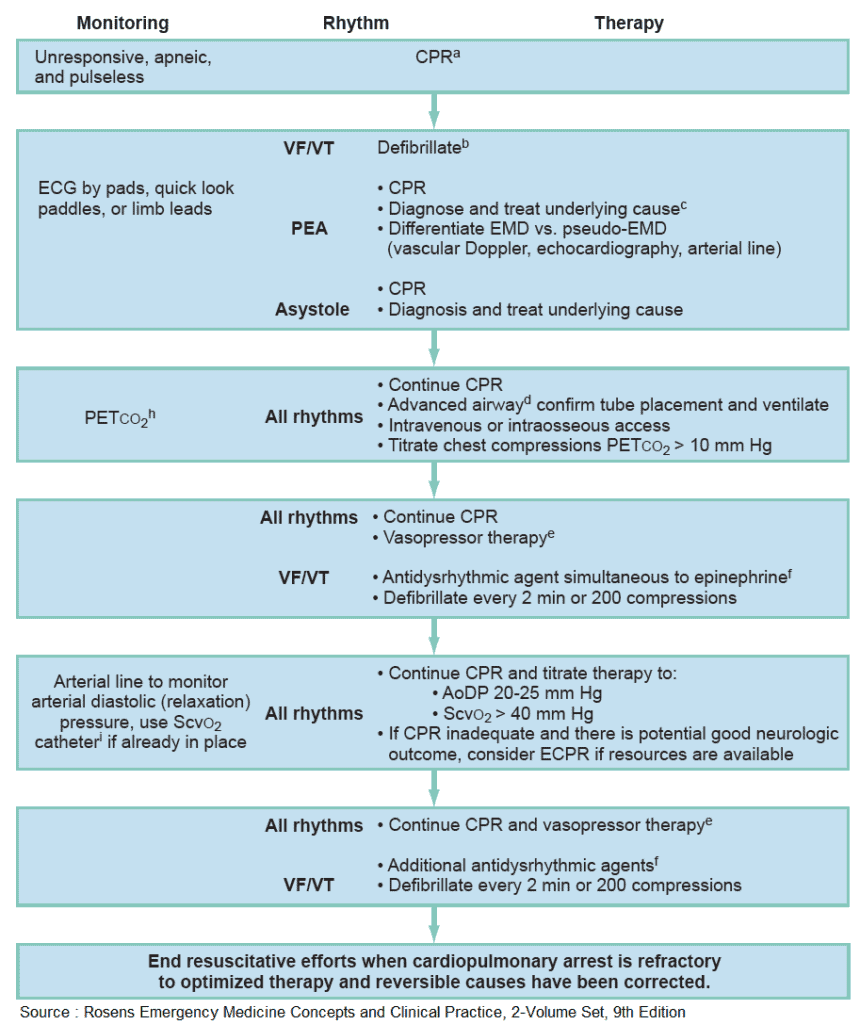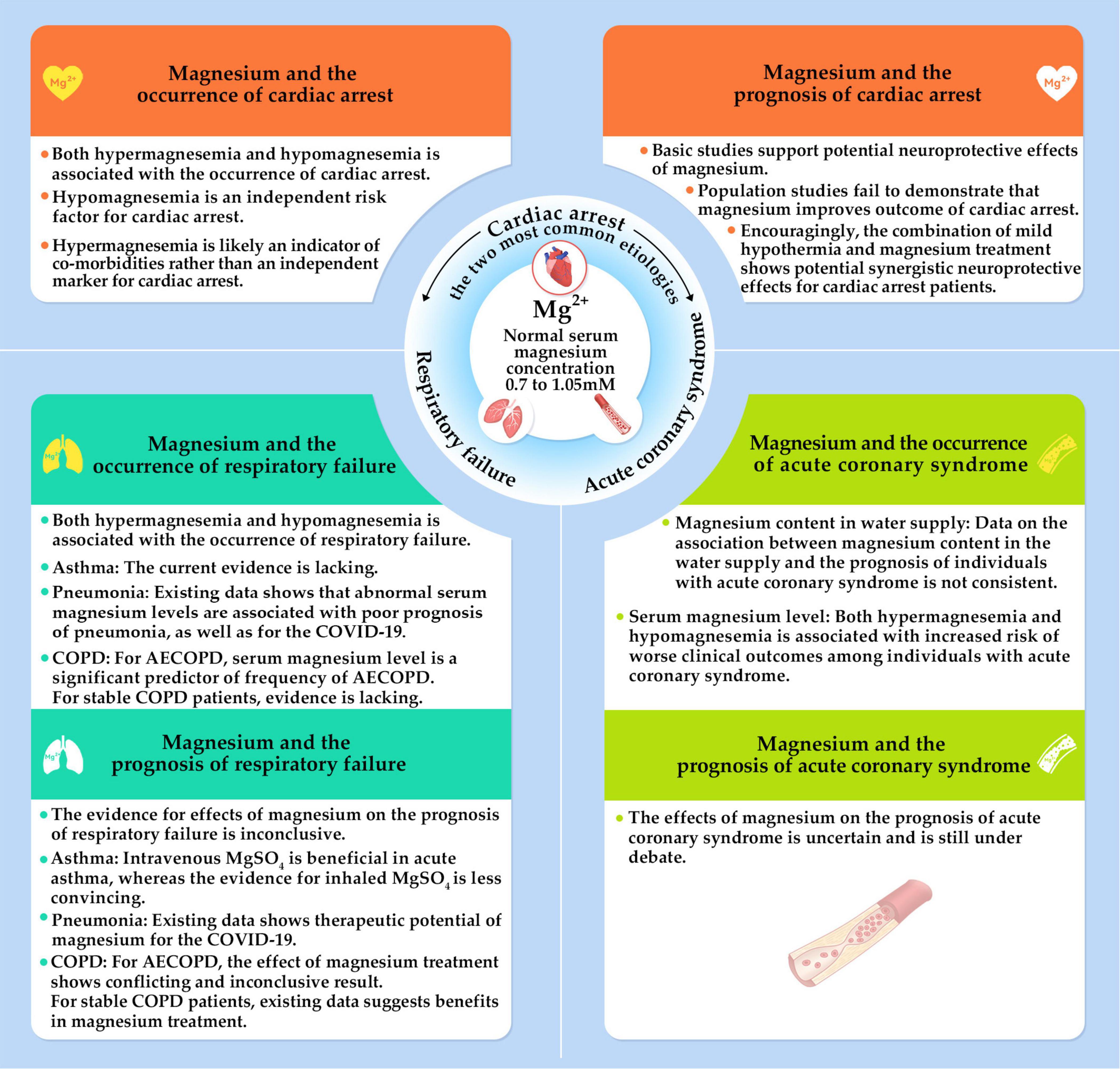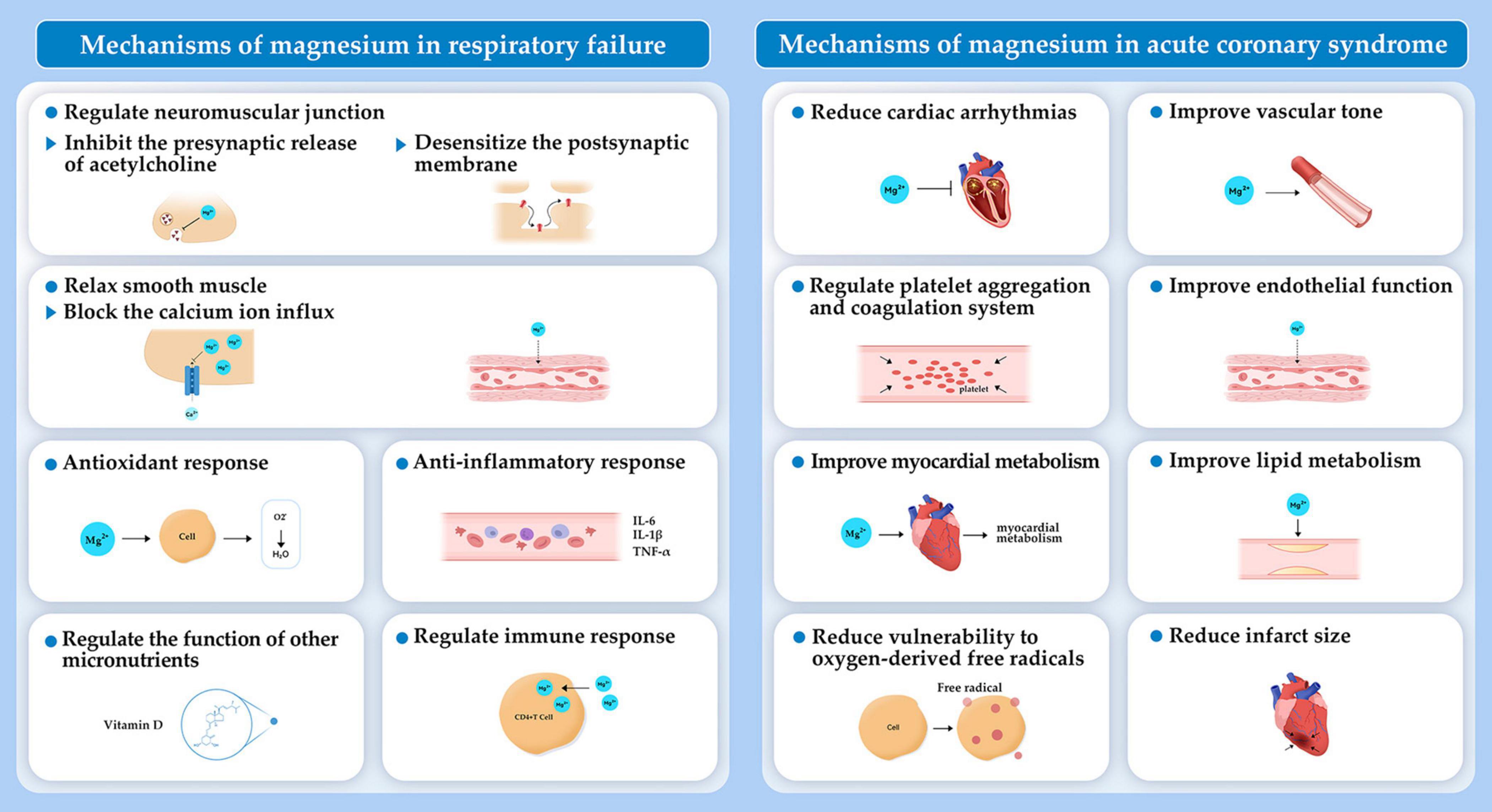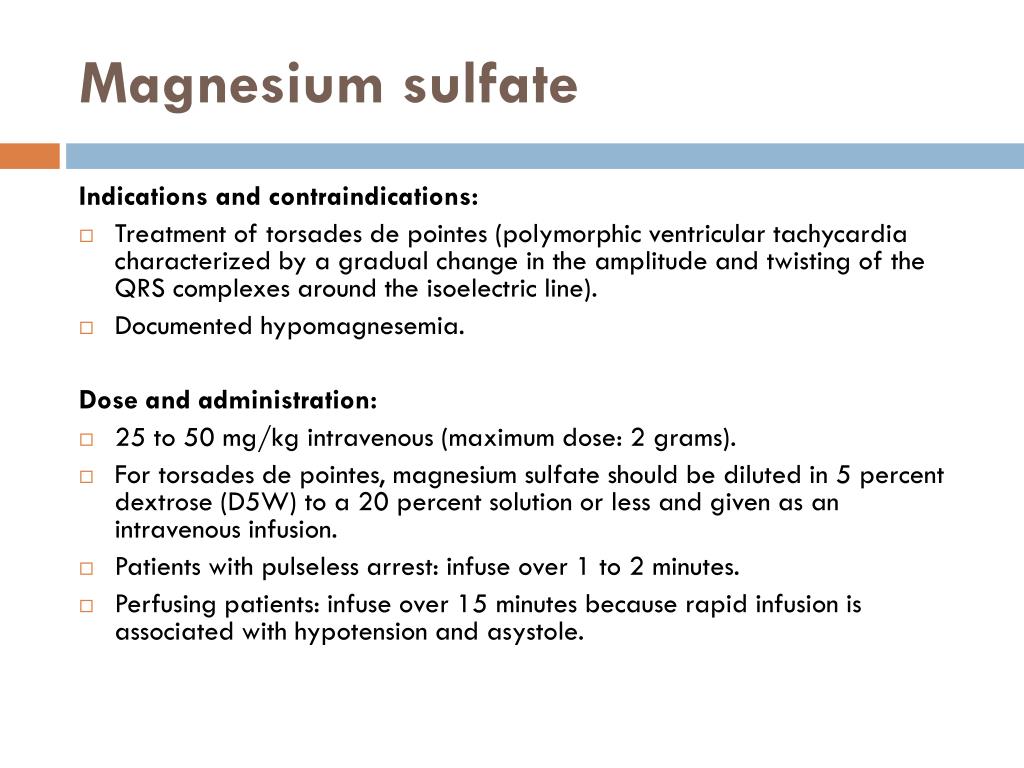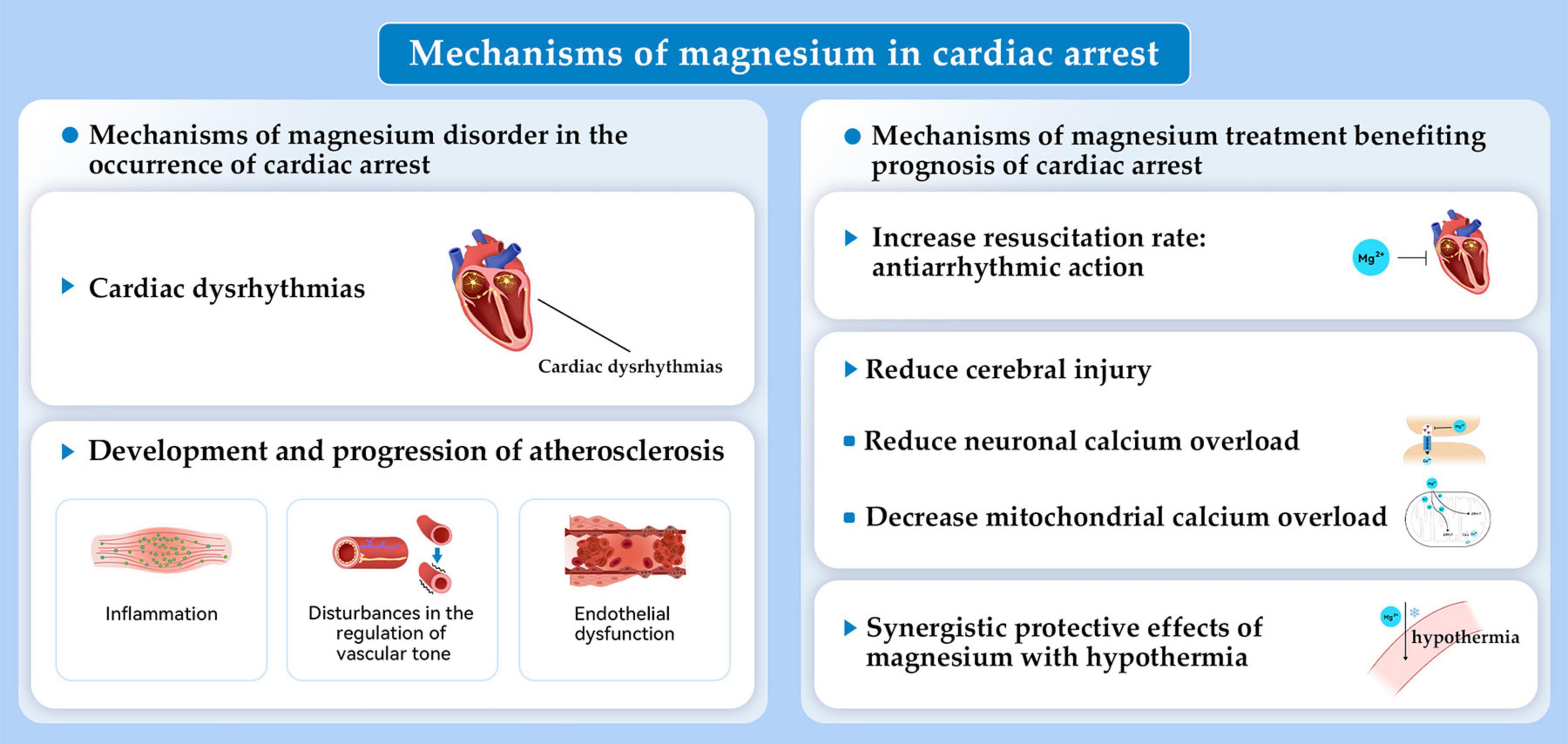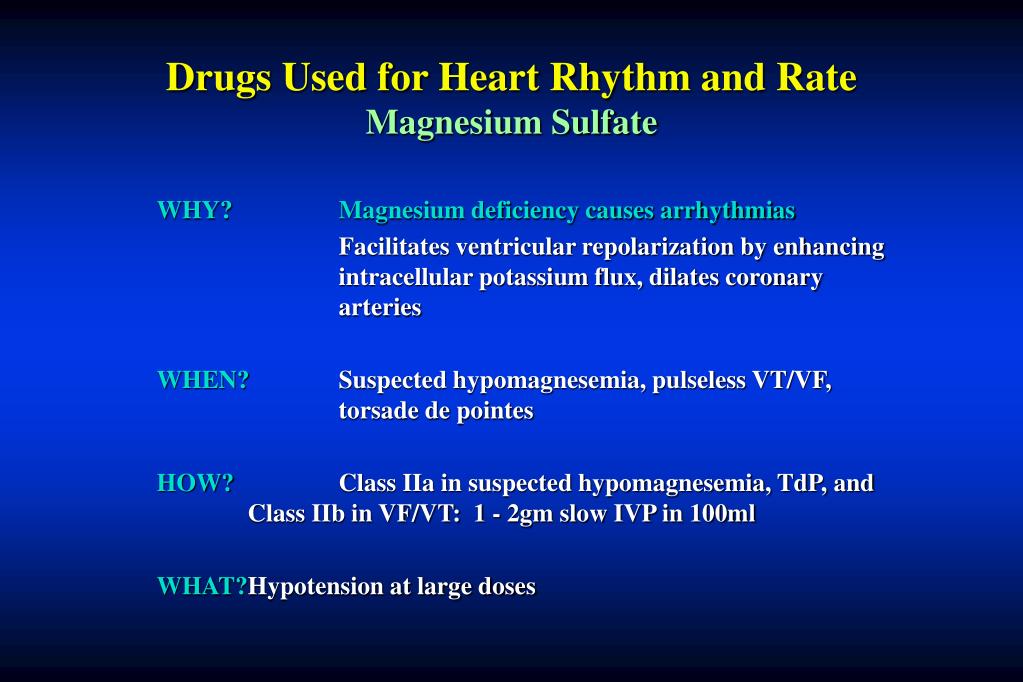Indication For The Use Of Magnesium In Cardiac Arrest - Magnesium sulfate is effective as an anticonvulsant and an antiarrhythmic. The current findings support the view that magnesium disorder is associated with increased risk of cardiac arrest as well as respiratory. Magnesium (mg) has important electrophysiological effects and normal concentrations are required to maintain regular. It is used to treat polymorphic ventricular tachycardia with a. Magnesium is used in cardiac arrest to stabilize heart rhythm, reduce myocardial oxygen demand, and prevent ventricular arrhythmias.
Magnesium sulfate is effective as an anticonvulsant and an antiarrhythmic. Magnesium (mg) has important electrophysiological effects and normal concentrations are required to maintain regular. It is used to treat polymorphic ventricular tachycardia with a. Magnesium is used in cardiac arrest to stabilize heart rhythm, reduce myocardial oxygen demand, and prevent ventricular arrhythmias. The current findings support the view that magnesium disorder is associated with increased risk of cardiac arrest as well as respiratory.
It is used to treat polymorphic ventricular tachycardia with a. Magnesium (mg) has important electrophysiological effects and normal concentrations are required to maintain regular. The current findings support the view that magnesium disorder is associated with increased risk of cardiac arrest as well as respiratory. Magnesium sulfate is effective as an anticonvulsant and an antiarrhythmic. Magnesium is used in cardiac arrest to stabilize heart rhythm, reduce myocardial oxygen demand, and prevent ventricular arrhythmias.
Managing Cardiac Arrest and Medications used in Cardiac arrest Manual
Magnesium (mg) has important electrophysiological effects and normal concentrations are required to maintain regular. It is used to treat polymorphic ventricular tachycardia with a. Magnesium sulfate is effective as an anticonvulsant and an antiarrhythmic. The current findings support the view that magnesium disorder is associated with increased risk of cardiac arrest as well as respiratory. Magnesium is used in cardiac.
Frontiers The role of magnesium in cardiac arrest
Magnesium is used in cardiac arrest to stabilize heart rhythm, reduce myocardial oxygen demand, and prevent ventricular arrhythmias. It is used to treat polymorphic ventricular tachycardia with a. The current findings support the view that magnesium disorder is associated with increased risk of cardiac arrest as well as respiratory. Magnesium sulfate is effective as an anticonvulsant and an antiarrhythmic. Magnesium.
Frontiers The role of magnesium in cardiac arrest
Magnesium is used in cardiac arrest to stabilize heart rhythm, reduce myocardial oxygen demand, and prevent ventricular arrhythmias. Magnesium sulfate is effective as an anticonvulsant and an antiarrhythmic. Magnesium (mg) has important electrophysiological effects and normal concentrations are required to maintain regular. The current findings support the view that magnesium disorder is associated with increased risk of cardiac arrest as.
Table 2 from Important Changes in the ACLS 2000 Guidelines for the
It is used to treat polymorphic ventricular tachycardia with a. Magnesium (mg) has important electrophysiological effects and normal concentrations are required to maintain regular. Magnesium is used in cardiac arrest to stabilize heart rhythm, reduce myocardial oxygen demand, and prevent ventricular arrhythmias. Magnesium sulfate is effective as an anticonvulsant and an antiarrhythmic. The current findings support the view that magnesium.
Figure 3 from The role of magnesium in cardiac arrest Semantic Scholar
Magnesium (mg) has important electrophysiological effects and normal concentrations are required to maintain regular. The current findings support the view that magnesium disorder is associated with increased risk of cardiac arrest as well as respiratory. Magnesium is used in cardiac arrest to stabilize heart rhythm, reduce myocardial oxygen demand, and prevent ventricular arrhythmias. Magnesium sulfate is effective as an anticonvulsant.
Acls medications
Magnesium sulfate is effective as an anticonvulsant and an antiarrhythmic. Magnesium (mg) has important electrophysiological effects and normal concentrations are required to maintain regular. It is used to treat polymorphic ventricular tachycardia with a. Magnesium is used in cardiac arrest to stabilize heart rhythm, reduce myocardial oxygen demand, and prevent ventricular arrhythmias. The current findings support the view that magnesium.
PPT CODE BLUE PowerPoint Presentation, free download ID2244654
The current findings support the view that magnesium disorder is associated with increased risk of cardiac arrest as well as respiratory. Magnesium is used in cardiac arrest to stabilize heart rhythm, reduce myocardial oxygen demand, and prevent ventricular arrhythmias. It is used to treat polymorphic ventricular tachycardia with a. Magnesium (mg) has important electrophysiological effects and normal concentrations are required.
Frontiers The role of magnesium in cardiac arrest
Magnesium is used in cardiac arrest to stabilize heart rhythm, reduce myocardial oxygen demand, and prevent ventricular arrhythmias. The current findings support the view that magnesium disorder is associated with increased risk of cardiac arrest as well as respiratory. Magnesium (mg) has important electrophysiological effects and normal concentrations are required to maintain regular. It is used to treat polymorphic ventricular.
Part 7.2 Management of Cardiac Arrest Circulation
The current findings support the view that magnesium disorder is associated with increased risk of cardiac arrest as well as respiratory. It is used to treat polymorphic ventricular tachycardia with a. Magnesium (mg) has important electrophysiological effects and normal concentrations are required to maintain regular. Magnesium sulfate is effective as an anticonvulsant and an antiarrhythmic. Magnesium is used in cardiac.
PPT Overview of ACLS Pharmacology and Update on New ACLS Guidelines
It is used to treat polymorphic ventricular tachycardia with a. Magnesium (mg) has important electrophysiological effects and normal concentrations are required to maintain regular. Magnesium sulfate is effective as an anticonvulsant and an antiarrhythmic. Magnesium is used in cardiac arrest to stabilize heart rhythm, reduce myocardial oxygen demand, and prevent ventricular arrhythmias. The current findings support the view that magnesium.
Magnesium Sulfate Is Effective As An Anticonvulsant And An Antiarrhythmic.
The current findings support the view that magnesium disorder is associated with increased risk of cardiac arrest as well as respiratory. Magnesium (mg) has important electrophysiological effects and normal concentrations are required to maintain regular. It is used to treat polymorphic ventricular tachycardia with a. Magnesium is used in cardiac arrest to stabilize heart rhythm, reduce myocardial oxygen demand, and prevent ventricular arrhythmias.
